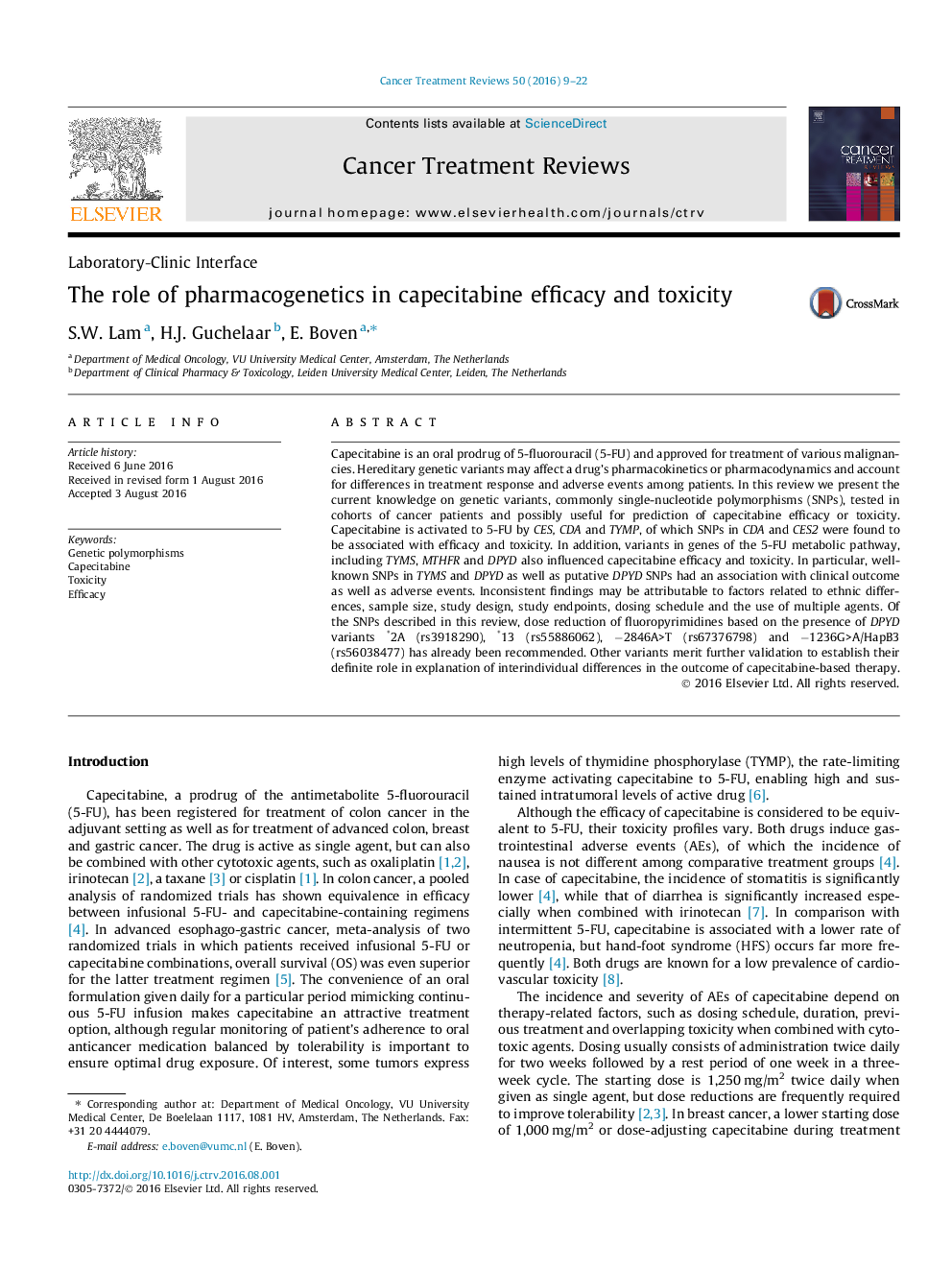| Article ID | Journal | Published Year | Pages | File Type |
|---|---|---|---|---|
| 3979717 | Cancer Treatment Reviews | 2016 | 14 Pages |
Capecitabine is an oral prodrug of 5-fluorouracil (5-FU) and approved for treatment of various malignancies. Hereditary genetic variants may affect a drug’s pharmacokinetics or pharmacodynamics and account for differences in treatment response and adverse events among patients. In this review we present the current knowledge on genetic variants, commonly single-nucleotide polymorphisms (SNPs), tested in cohorts of cancer patients and possibly useful for prediction of capecitabine efficacy or toxicity. Capecitabine is activated to 5-FU by CES, CDA and TYMP, of which SNPs in CDA and CES2 were found to be associated with efficacy and toxicity. In addition, variants in genes of the 5-FU metabolic pathway, including TYMS, MTHFR and DPYD also influenced capecitabine efficacy and toxicity. In particular, well-known SNPs in TYMS and DPYD as well as putative DPYD SNPs had an association with clinical outcome as well as adverse events. Inconsistent findings may be attributable to factors related to ethnic differences, sample size, study design, study endpoints, dosing schedule and the use of multiple agents. Of the SNPs described in this review, dose reduction of fluoropyrimidines based on the presence of DPYD variants *2A (rs3918290), *13 (rs55886062), −2846A>T (rs67376798) and −1236G>A/HapB3 (rs56038477) has already been recommended. Other variants merit further validation to establish their definite role in explanation of interindividual differences in the outcome of capecitabine-based therapy.
•Review on pharmacogenetic research.•Current research has primarily focused on well-known 5-FU-metabolizing enzymes.•Emerging data are available on genetic variants of capecitabine-activating enzymes.
